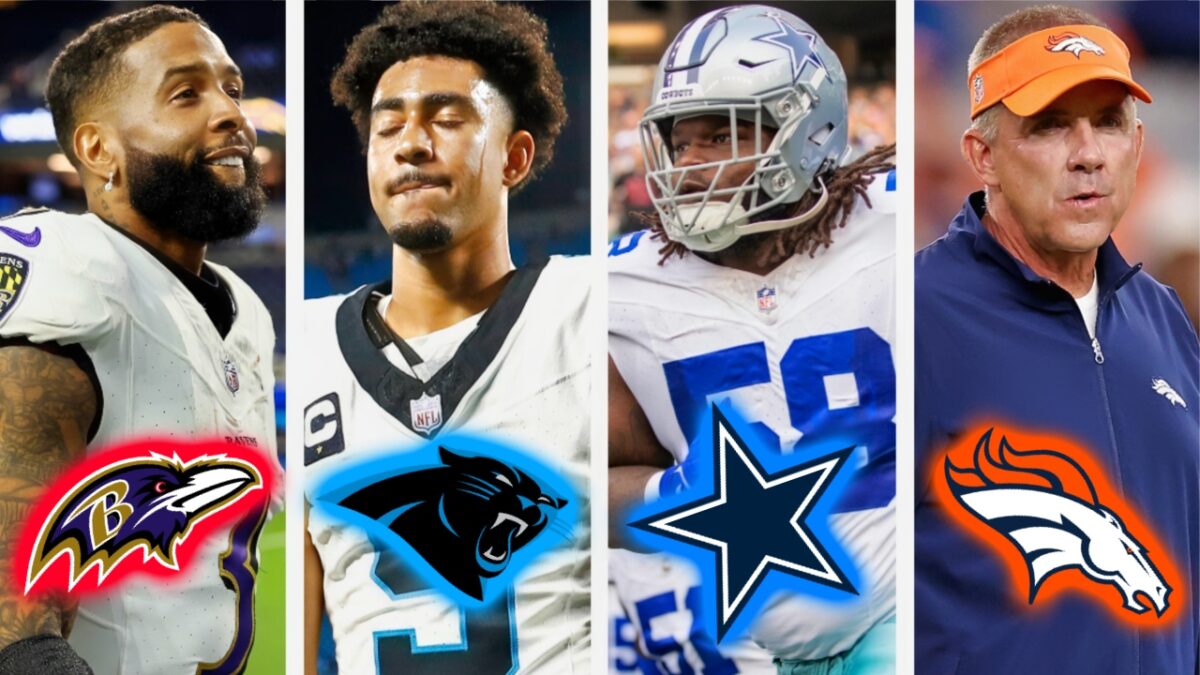
There’s no taking back the many mistakes that were committed in the NFL offseason a year ago. All the 32 NFL teams can do now is simply learn from their 2023 offseason blunders and try to avoid making the same miscues this year.
With that said, let’s take a trip down memory lane and reflect on every NFL team’s worst offseason move of 2023.
Arizona Cardinals: Drafting Paris Johnson Jr.
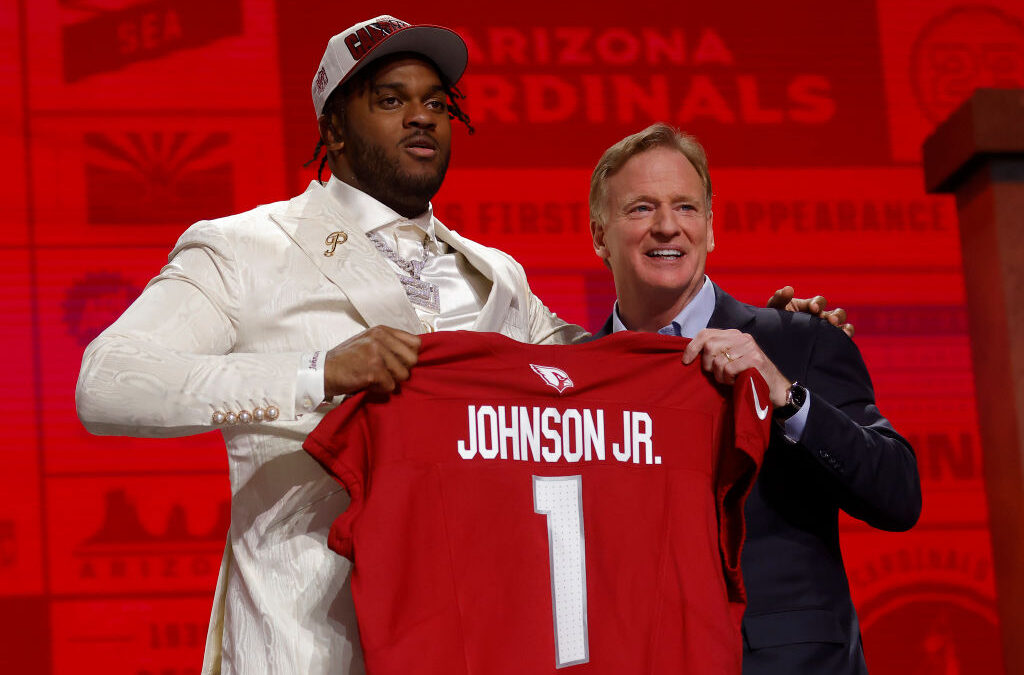
The Cardinals traded out of the No. 3 spot into the No. 12 position. Then they traded up via the Detroit Lions into the sixth slot so they could take Ohio State offensive tackle Paris Johnson Jr.
Johnson Jr. had a tough rookie year, committing 12 penalties and allowing eight sacks on 1,130 snaps, per Pro Football Focus. Jalen Carter, Peter Skoronski, Christian Gonzalez and Broderick Jones are among the better prospects Arizona passed on.
Atlanta Falcons: Signing Taylor Heinicke
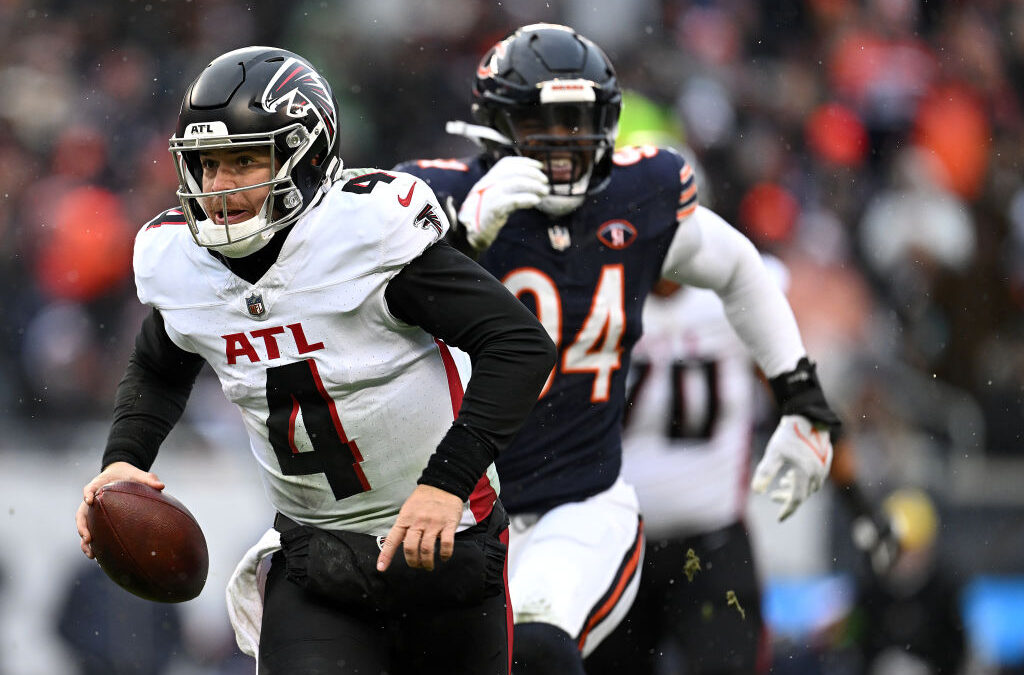
The Falcons signed the ex-Washington Commander to a two-year deal worth $14 million, hoping he could serve as ample QB insurance in case Desmond Ridder didn’t pan out.
Click on ‘Follow Us’ and get notified of the most viral NFL stories via Google! Follow Us
Well, the Ridder-Heinicke tandem cost Atlanta the NFC South division crown — and head coach Arthur Smith his job. Ridder and Heinicke were equally mediocre, with the latter completing barely over half his pass attempts for five touchdowns and four interceptions.
Baltimore Ravens: Signing Odell Beckham Jr.
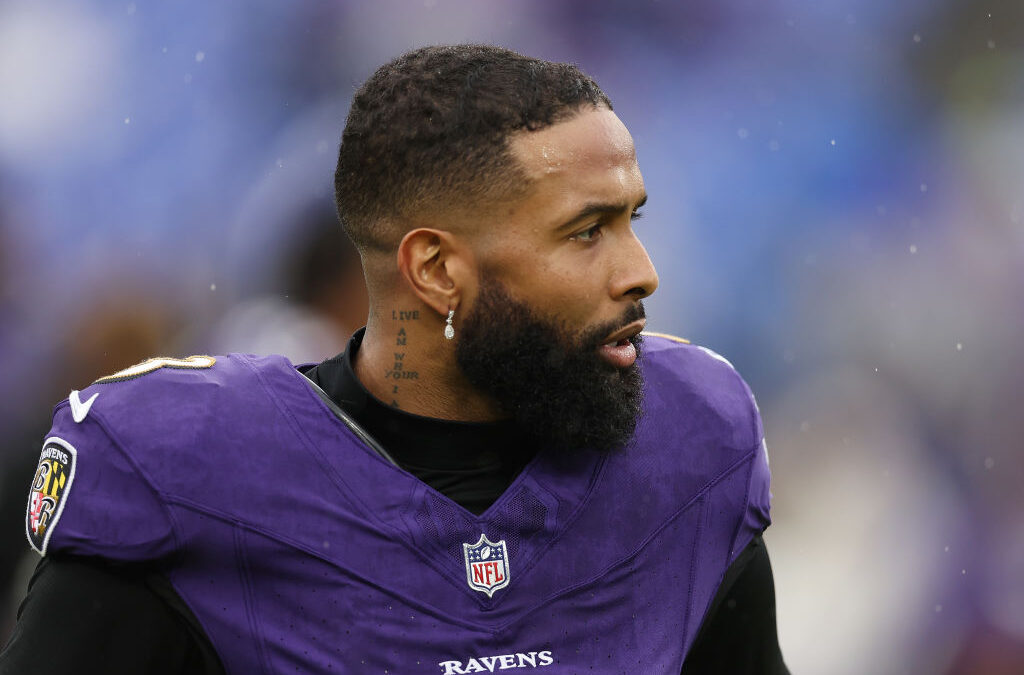
Looking to bolster their receiver room, the Raves signed former Pro Bowl wideout Odell Beckham Jr. to a one-year deal worth $15 million with a max value of $18 million.
OBJ finished with only 35 receptions for 565 yards and three touchdowns in 14 games.
Buffalo Bills: Extending Jordan Poyer
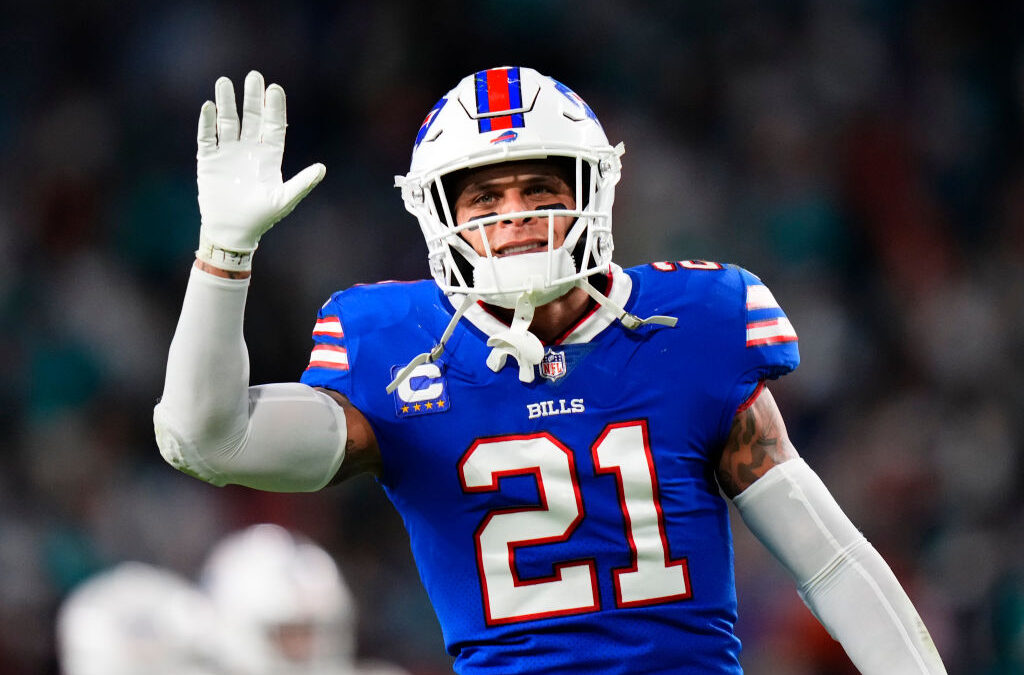
The Bills gave Poyer a two-year extension worth $12.5 million in 2022, even though it was obvious that he was on the decline heading into his age-32 season.
Hoyer had an awfully disappointing final season in Buffalo, recording zero picks and yielding a 101.5 opponent passer rating when targeted, per Pro Football Reference. The Bills released Hoyer in the 2024 offseason, making this extension a waste of money, and, quite frankly, time.
Carolina Panthers: The Bryce Young Trade
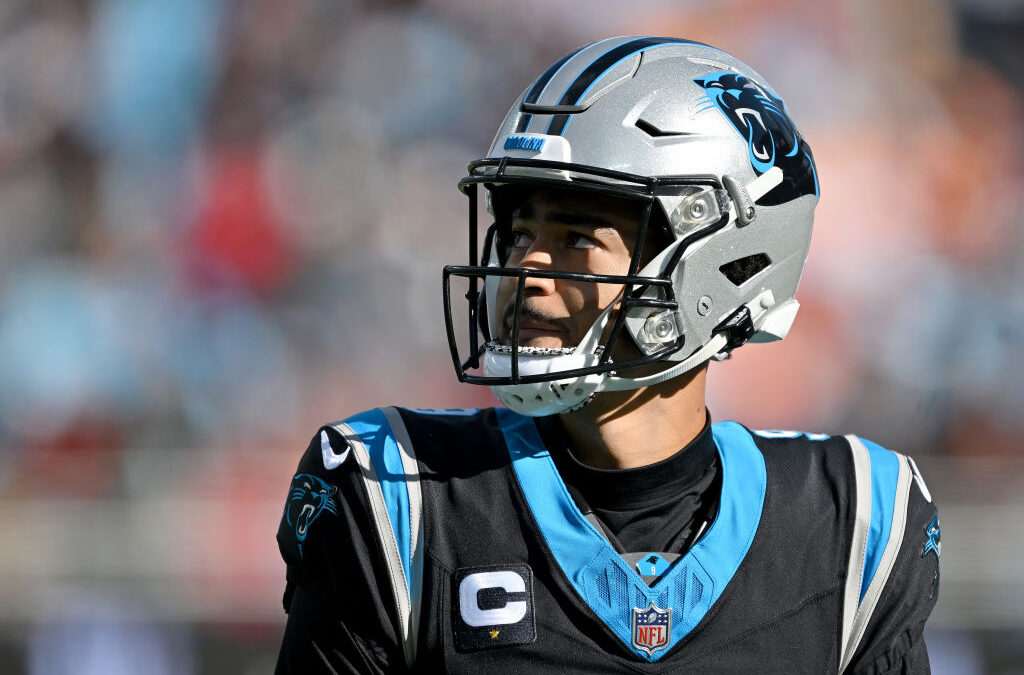
Hindsight is 20/20, but boy did the Panthers screw this one up big time. If they had tanked for one more year, they could have had Caleb Williams this year…plus DJ Moore and last year’s first-round pick.
Young had a forgettable rookie year that led to the dismissals of head coach Frank Reich and GM Scott Fitterer.
Chicago Bears: Signing Tremaine Edmunds
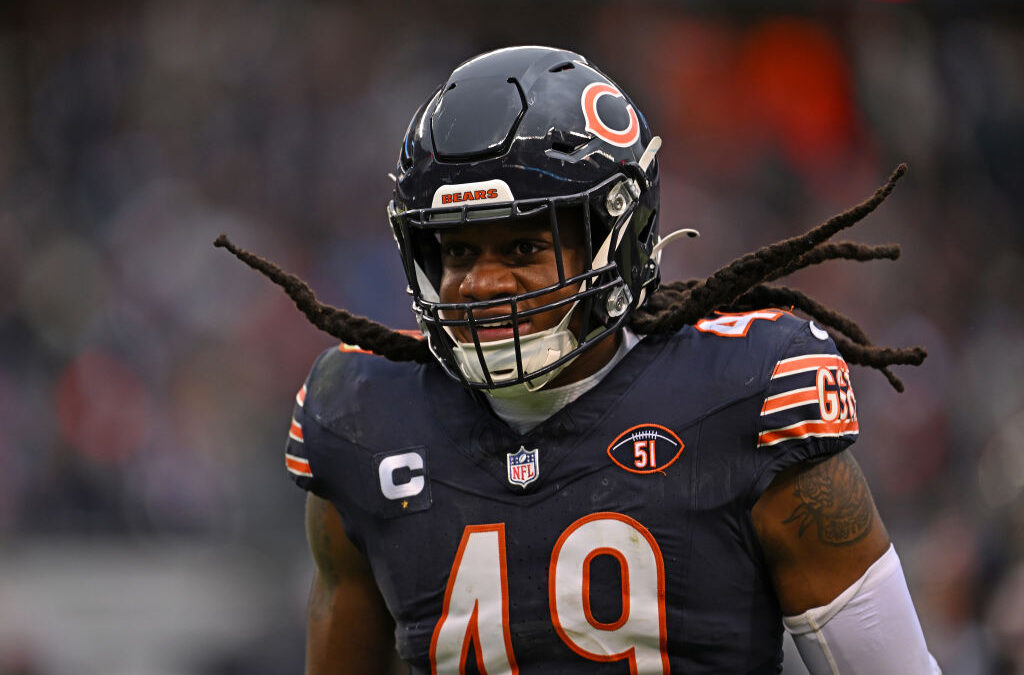
The Bears signed Edmunds to a four-year deal worth $72 million in free agency, clearly ignoring the fact that a lot of his success stemmed from playing on a star-studded Buffalo defense.
Sure enough, Edmunds failed to live up to the high expectations in year one of his deal. He finished with a woeful PFF grade of 56.6 while allowing a 78.5 percent completion percentage when targeted and three TDS in coverage, per PFR.
Cincinnati Bengals: Drafting Myles Murphy
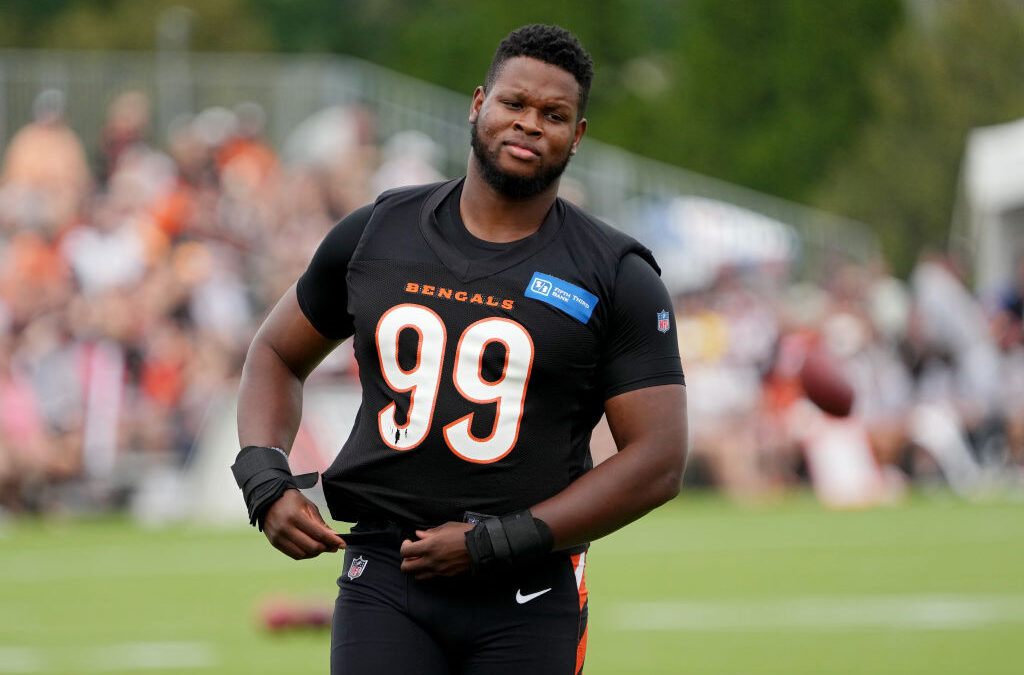
The Bengals didn’t get much out of their 2023 first-round draft choice, who only played 28 percent of the team’s defensive snaps.
PFF gave Murphy a rookie grade of 56.2. Clearly, there’s a lot of room for improvement.
Cleveland Browns: Signing Dalvin Tomlinson
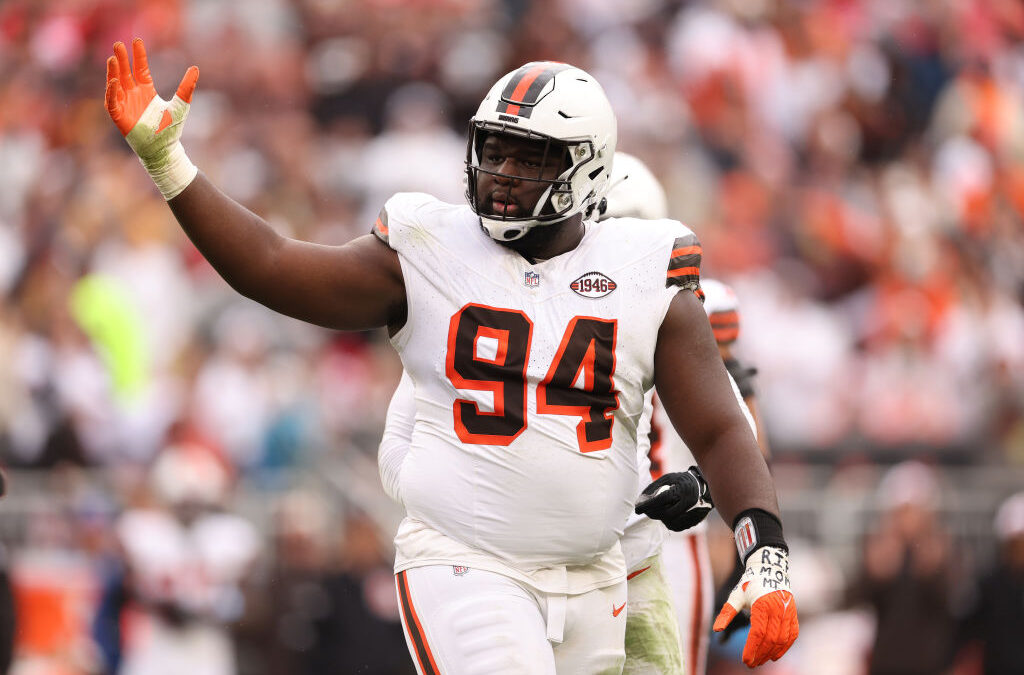
The Browns signed the veteran defensive tackle to a four-year deal worth $57 million, hoping he could be a useful complement to superstar pass-rusher Myles Garrett.
Tomlinson had three sacks and 12 QB hits on the year, but he wasn’t a consistent performer in the trenches whatsoever
The good folks at PFF handed Tomlinson a disappointing 63.3 season grade that was well below the excellent mark of 77.1 he put up a year earlier in Minnesota.
Dallas Cowboys: Drafting Mazi Smith
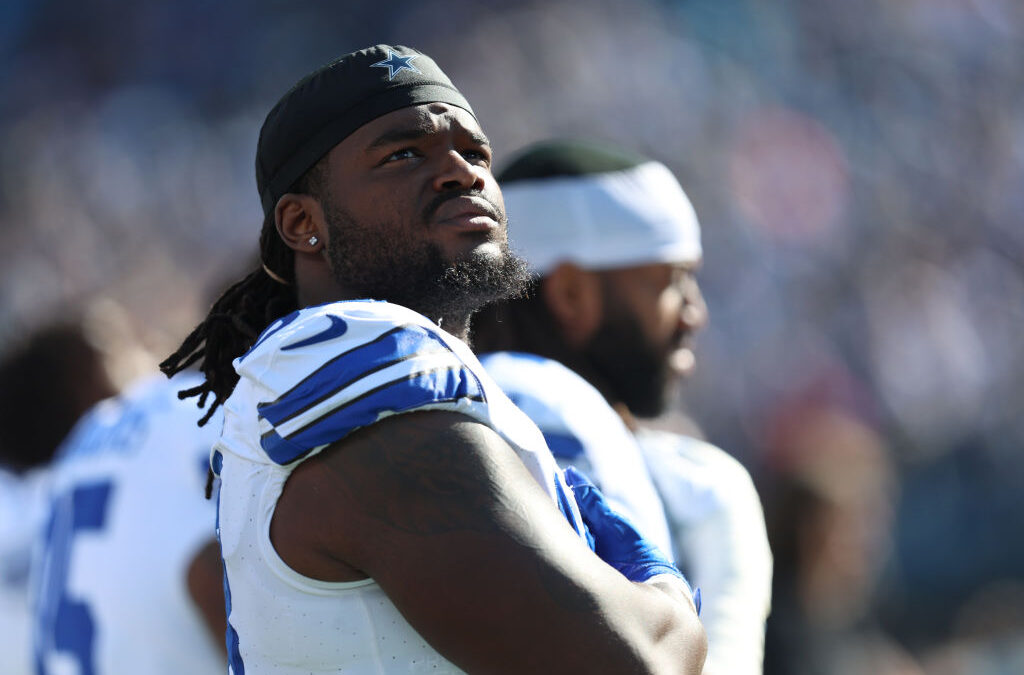
The Cowboys reached for the Michigan defensive tackle at No. 26 in the draft.
Smith saw less than a third of the Cowboys’ defensive snaps and had just one sack and three QB hits despite appearing in all 17 games.
Denver Broncos: Trading For Sean Payton
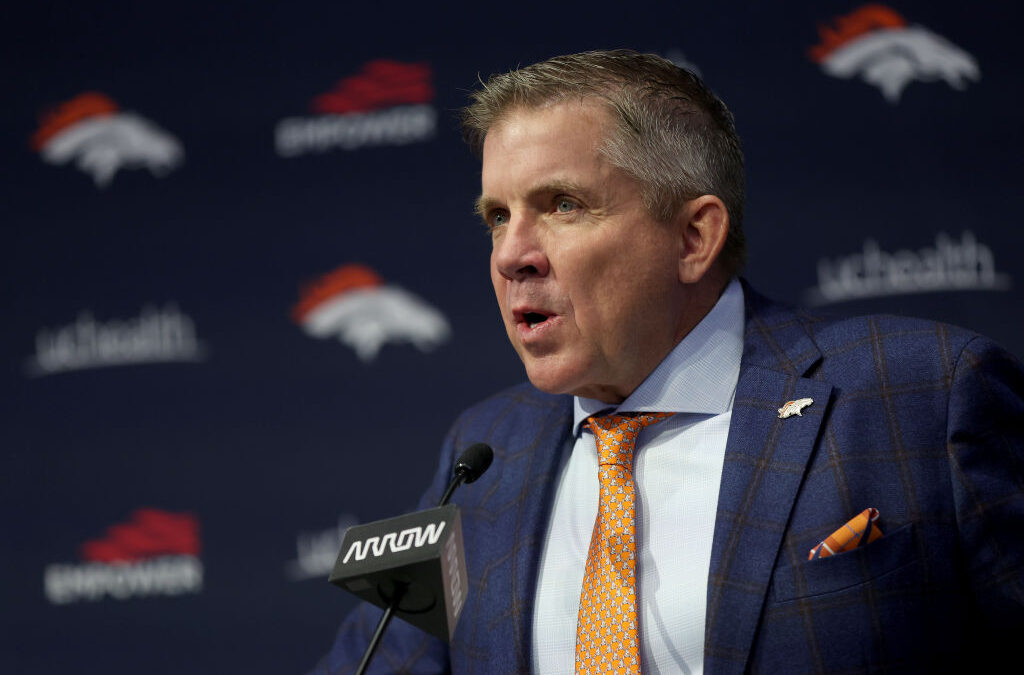
The Broncos acquired the future Hall of Fame head coach via trade with New Orleans – along with a 2024 third-round selection — in exchange for the No. 29 pick in 2023 plus a 2024 second-rounder.
Payton’s job was to help Russell Wilson bounce back and turn the Broncos offense into a juggernaut. Wilson bounced back, alright, but it wasn’t enough for Payton and the Broncos… who limped to an 8-and-9 finish.
The Broncos cut Wilson after the season and took on a record $85 million charge in dead money. So uh, Denver gave up all this draft capital to hire Payton to…make this team worse?
Detroit Lions: Signing Cameron Sutton
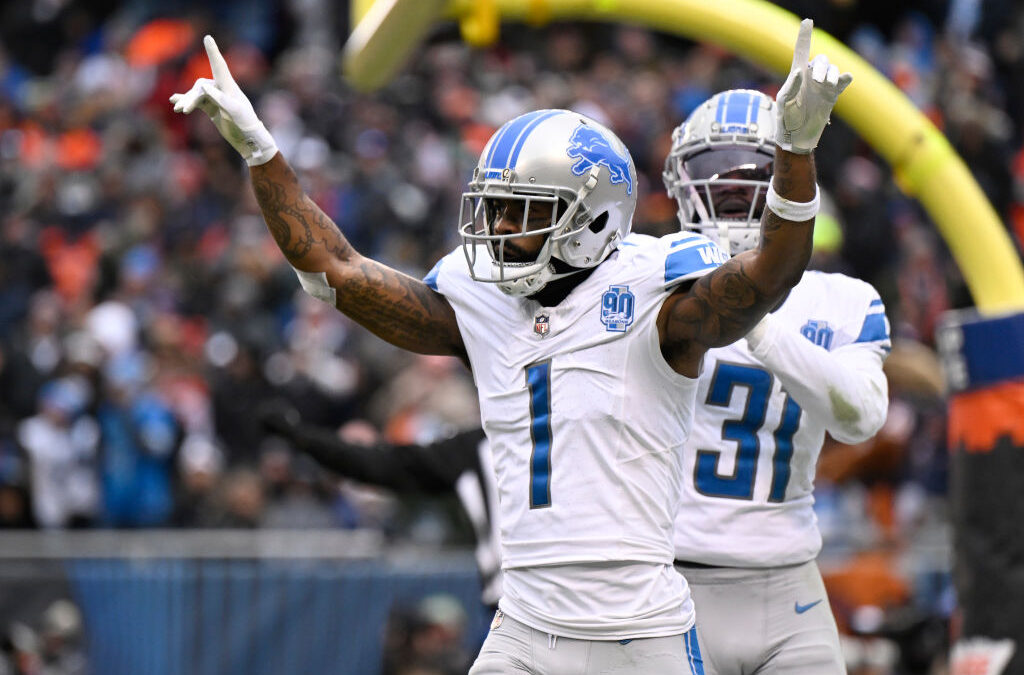
The Lions aced almost all of their moves last offseason. That said, Brad Holmes and Dan Campbell would surely like buyer’s remorse on the Sutton signing.
Sutton signed a three-year deal worth $33 million, with the simple task of upgrading their secondary. He allowed a 67.0 completion percentage and a nightmare 112.3 passer rating when targeted.
No wonder the Lions traded for Carlton Davis this offseason to bolster the CB room after striking out on Sutton.
Green Bay Packers: Drafting Lukas Van Ness
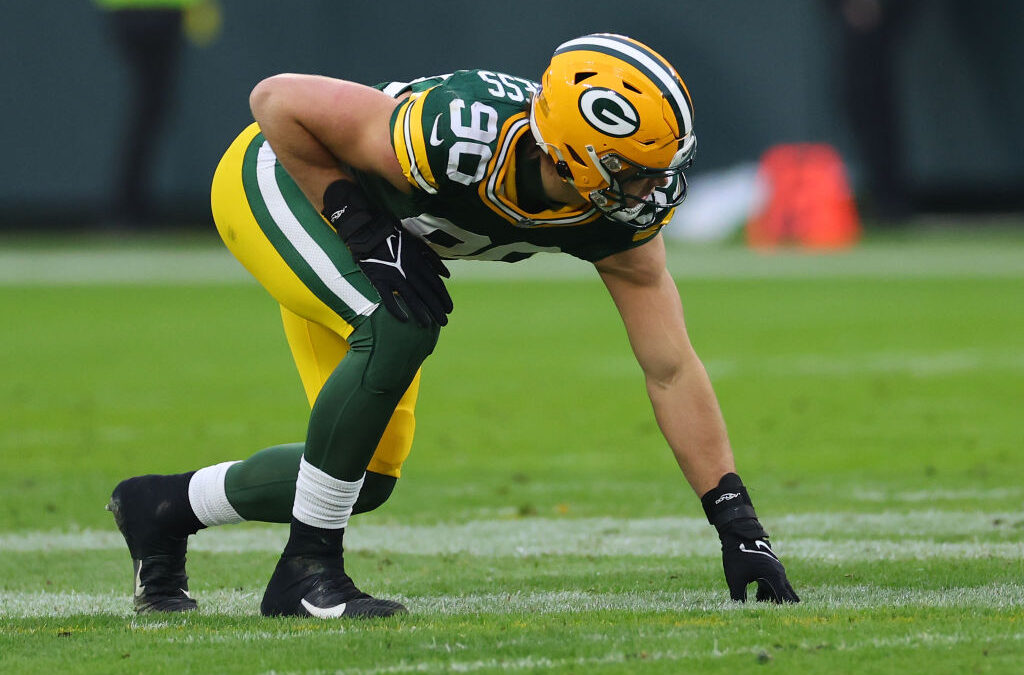
It’s not Van Ness THE PLAYER that we disliked about this pick. It’s the fact the Packers are loaded with pass-rushers and game-wreckers in the front seven. Why did they draft the Iowa product 13th overall when there were more pressing needs?
Van Ness had an uneven year as a rookie, having seen just 33 percent of the Packers’ defensive snaps. Here, they could have used someone like Broderick Jones, Jaxon Smith-Njigba, Zay Flowers, Jordan Addison or Christian Gonzalez far more than they used Van Ness.
Houston Texans: Signing Robert Woods
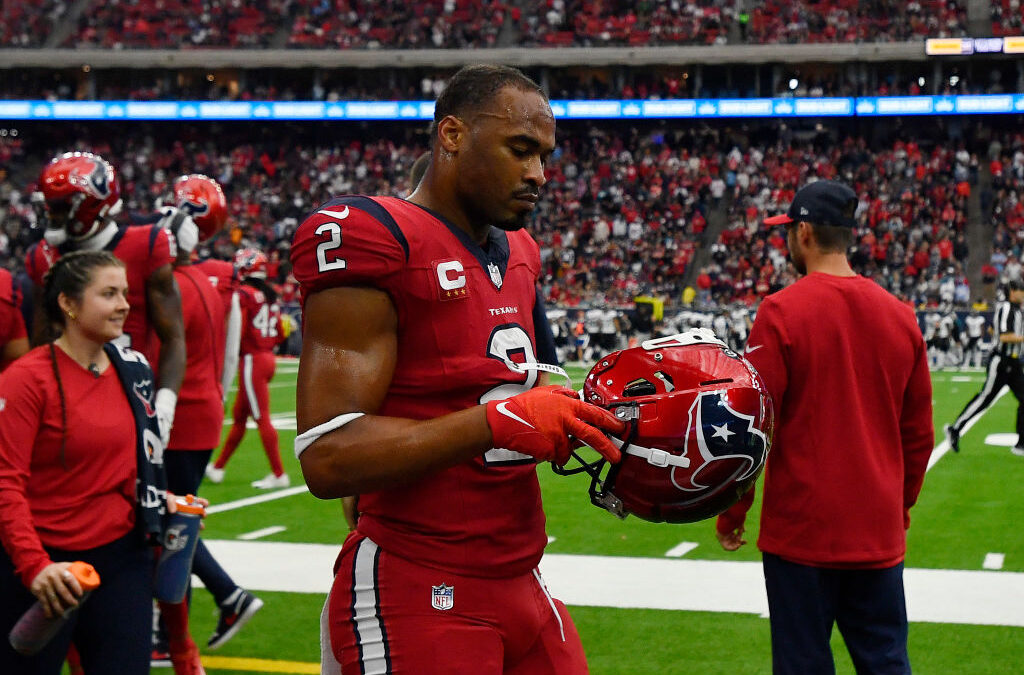
The Texans signed the ex-Rams star to a two-year deal worth $15.25 million, hoping he could serve as at least a capable No. 2 receiver to CJ Stroud.
Thanks to the emergence of both Nico Collins and Tank Dell, Houston didn’t end up needing Woods anyway. He caught 40 passes for just 426 yards and one touchdown — marking far-and-away the worst statistical season of his career.
Indianapolis Colts: Trading Stephon Gilmore
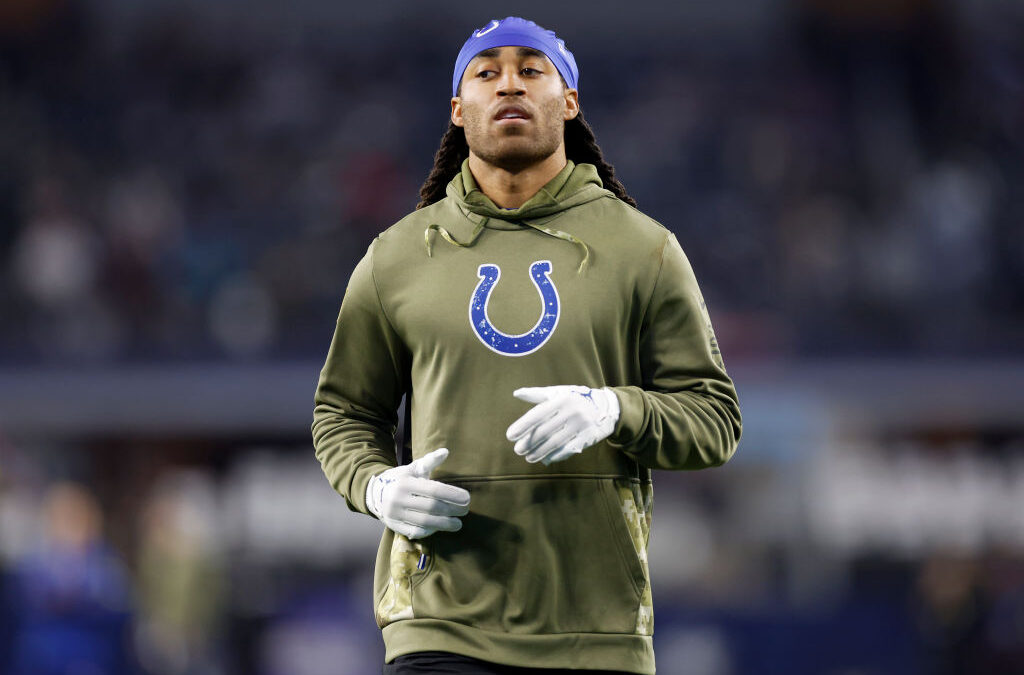
The Colts finished a surprising 9-and-8 and just barely missed out on the postseason. Again, hindsight is 20/20, but maybe they would have snuck in IF they didn’t trade All-Pro corner Stephon Gilmore to the Cowboys for nothing more than a fifth-round pick?
Gilmore was again rock-solid in coverage for the Cowboys, forming a dynamic duo alongside rising star DaRon Bland with Trevon Diggs out for most of the year. Now imagine if the Colts had kept the Gilmore-Kenny Moore tandem intact?
Jacksonville Jaguars: Drafting Brenton Strange
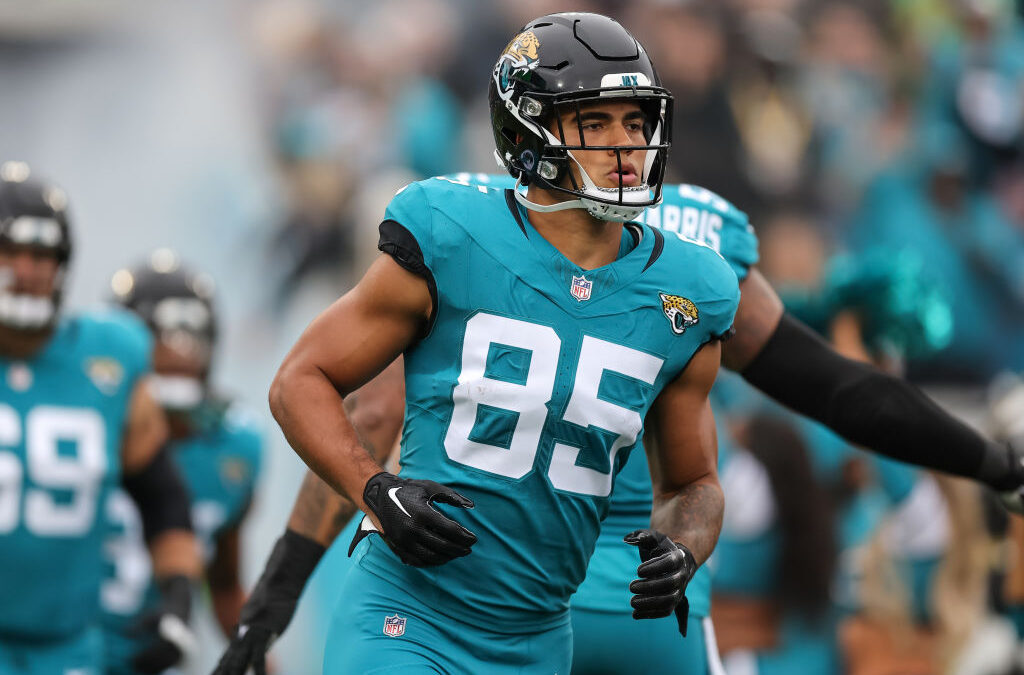
This was a “strange” pick, if you will.
The Jaguars already had Christian Kirk, Calvin Ridley, Travis Etienne Jr. AND tight end Evan Engram as their top weapons. They didn’t need another TE, yet GM Trent Baalke used his second-round pick – No. 61 overall – on Penn State’s Brenton Strange.
Strange caught five passes for 35 yards and one touchdown in his rookie year. Remind us why the Jags needed a backup tight end?
Kansas City Chiefs: Signing Jawaan Taylor
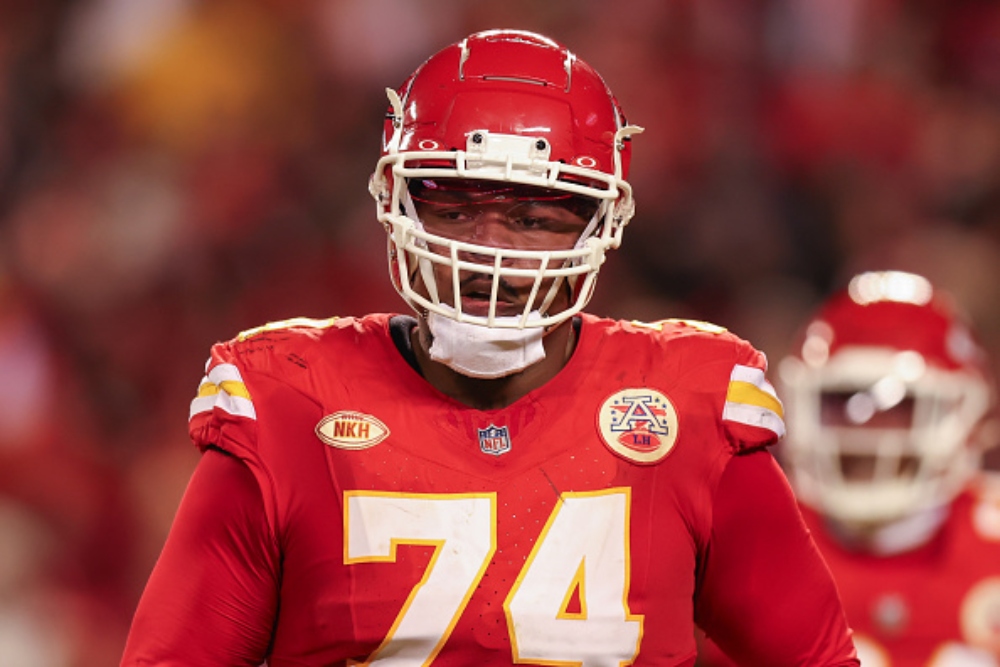
The Chiefs replaced Pro Bowler Orlando Brown Jr. with Jawaan Taylor, who signed a mammoth four-year deal worth $80 million.
Yes, the Chiefs won Super Bowl 58 anyway, but what a mess this Taylor signing was. Per PFF, he committed a league-high 20 penalties and allowed five sacks. Good thing the rest of KC’s o-line was able to mask Taylor’s awfulness in the trenches.
Las Vegas Raiders: Signing Jimmy Garoppolo
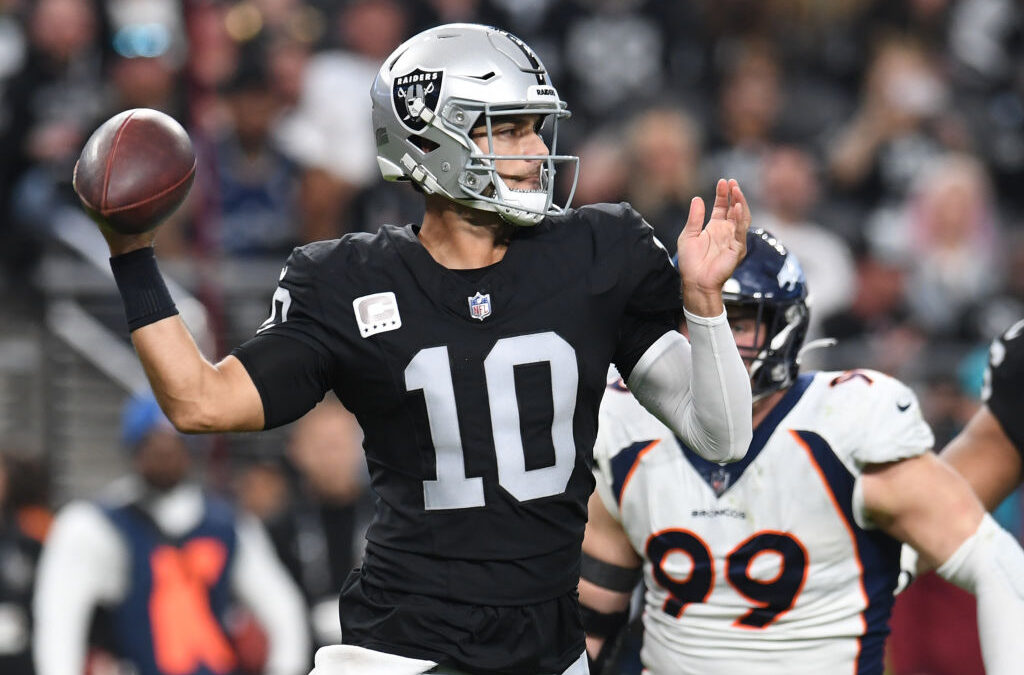
The Raiders raised plenty of eyebrows when they released Derek Carr with the belief that Jimmy Garoppolo would be an upgrade at QB.
Jimmy G signed a three-year deal worth $72.75 million, reuniting him with Josh McDaniels. How’d that turn out? Oh, you know, seven touchdowns, nine interceptions and a mid-season benching in favor of rookie Aidan O’Connell.
Other than that, it wasn’t a bad signing by the Raiders at all!
Los Angeles Chargers: Drafting Quentin Johnston
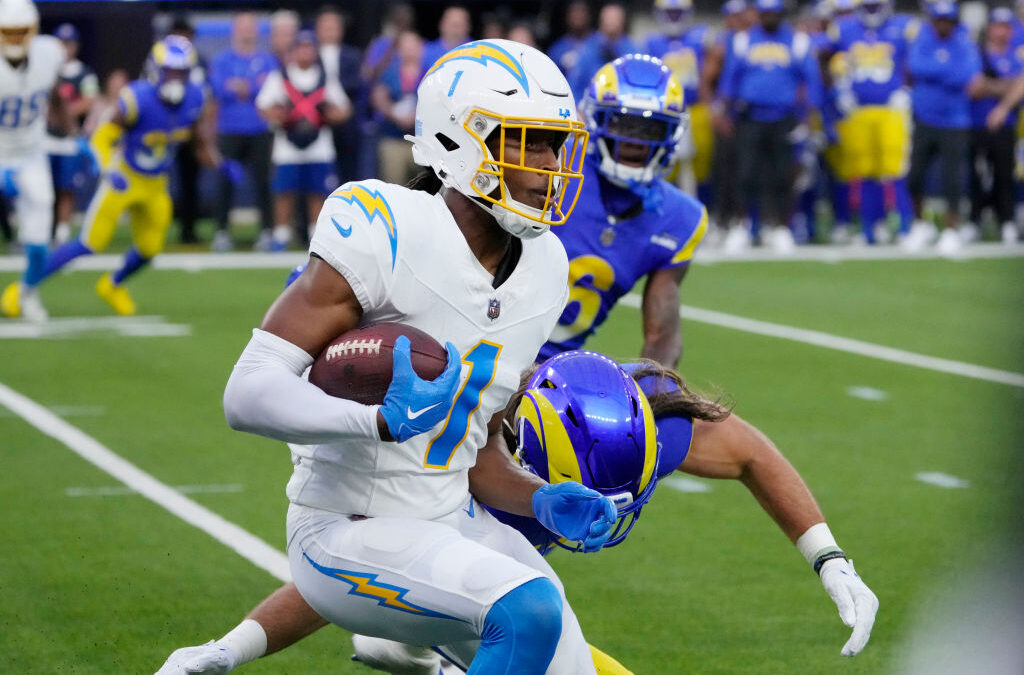
Despite already having two-star pass-catchers in Mike Williams and Keenan Allen, the Chargers opted to take the TCU product 21st overall instead of prioritizing other positions of need.
Johnston was a total non-factor in his rookie year, hauling in just 38 receptions for 431 yards and two touchdowns. Making matters worse for LA? The next two picks were fellow wideouts Zay Flowers and Jordan Addison, who both hit the 70-catch and 800-yard receiving marks.
Los Angeles Rams: Releasing Bobby Wagner
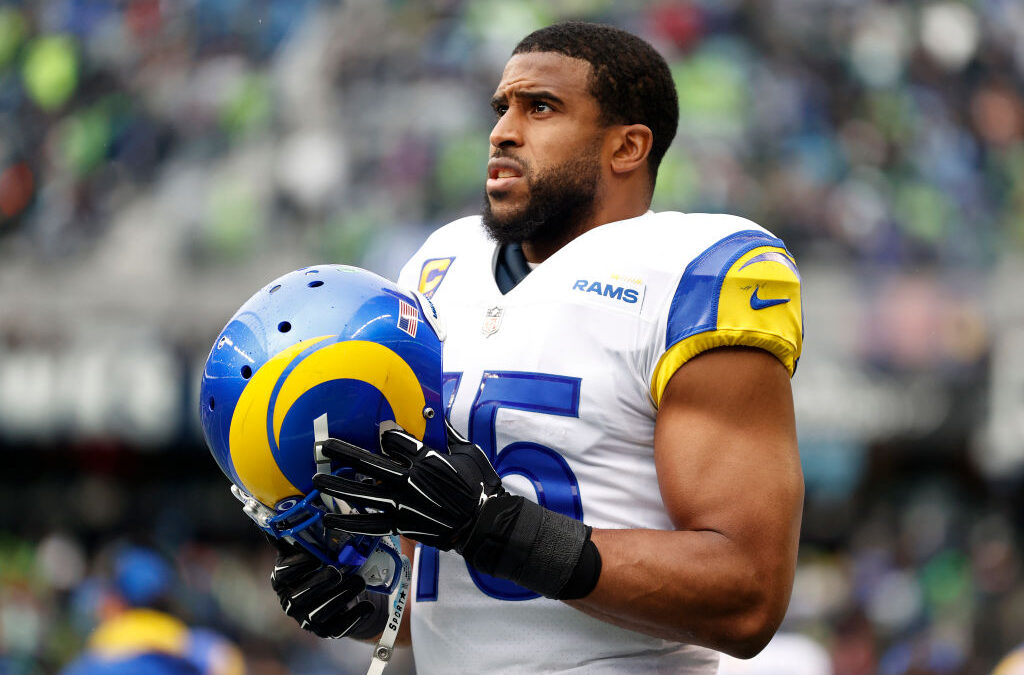
Les Snead mastered the 2023 offseason for the most part, hence the Rams’ unexpected return to the postseason. Still, the decision to cut Bobby Wagner one year after handing him a $50 million contract remains a head-scratcher.
Wagner was a beast in his lone season with the Rams in 2021, even tallying a career-high six sacks. But they cut him anyway to save money, and Wagner went back to the archrival Seahawks, where he earned his ninth Pro Bowl nod.
Miami Dolphins: Drafting Cam Smith
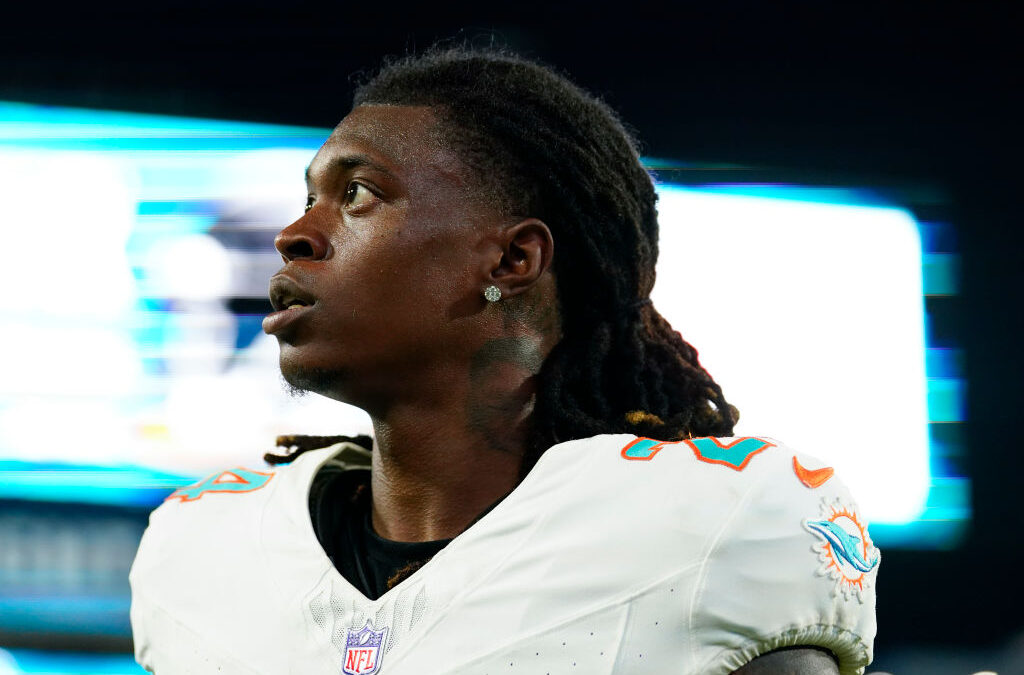
This isn’t a knock against Smith. It’s just, that Miami already had two superstar corners in Jalen Ramsey and Xavien Howard. So using their initial 2023 draft pick — 51st overall – on the South Carolina corner was a head-scratcher.
Smith saw little playing time as a rookie and made no impact at all.
Minnesota Vikings: Signing Josh Oliver
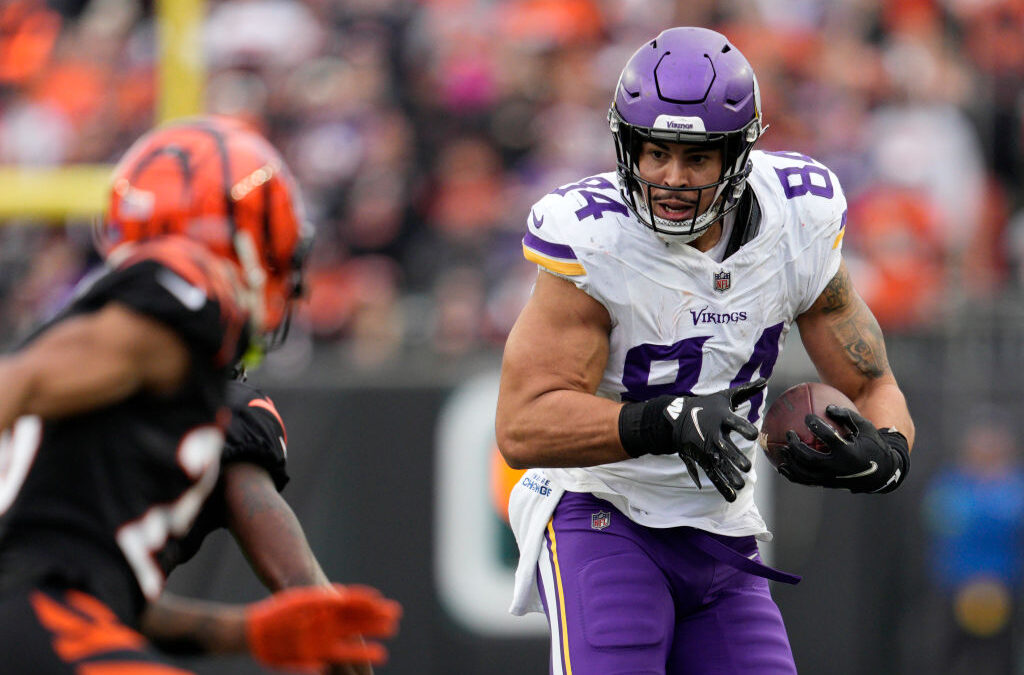
Despite the presence of TJ Hockenson, the Vikings decided they needed another expensive tight end. So Josh Oliver was given a three-year, $21 million pact despite being a career backup with two career TDs up to that point.
Sure enough, Oliver’s impact in Minnesota was minimal. He hauled in 22 receptions for 213 yards and only two touchdowns. To think the cap-strapped Vikings could have used that money to retain Dalvin Cook or address their leaky defense…
New England Patriots: Signing JuJu Smith-Schuster
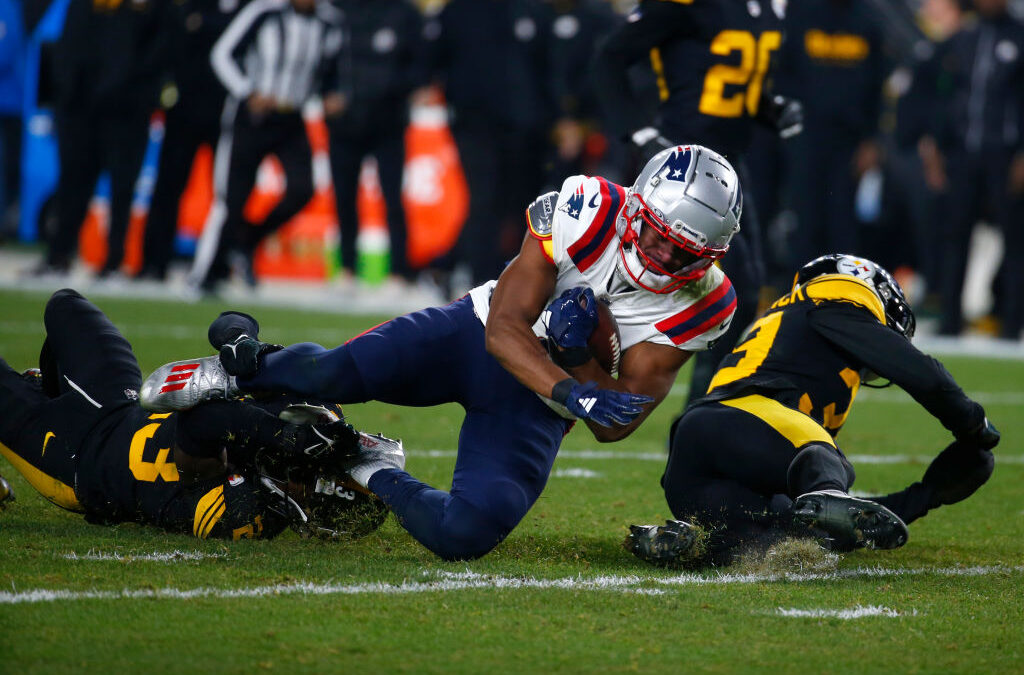
Rather than retain top wideout Jakobi Meyers, the Pats let him walk to free agency and then replaced Mac Jones’ favorite target with JuJu Smith-Schuster.
The speedy wideout was handed a three-year deal worth $25.5 million — the exact same contract Meyers signed with Las Vegas.
In 11 games with the Pats, Smith-Schuster had 29 receptions for 260 yards and a touchdown. Just one of Bill Belichick’s last major mistakes as a GM that led to his rather sour departure this year!
New Orleans Saints: Signing Derek Carr
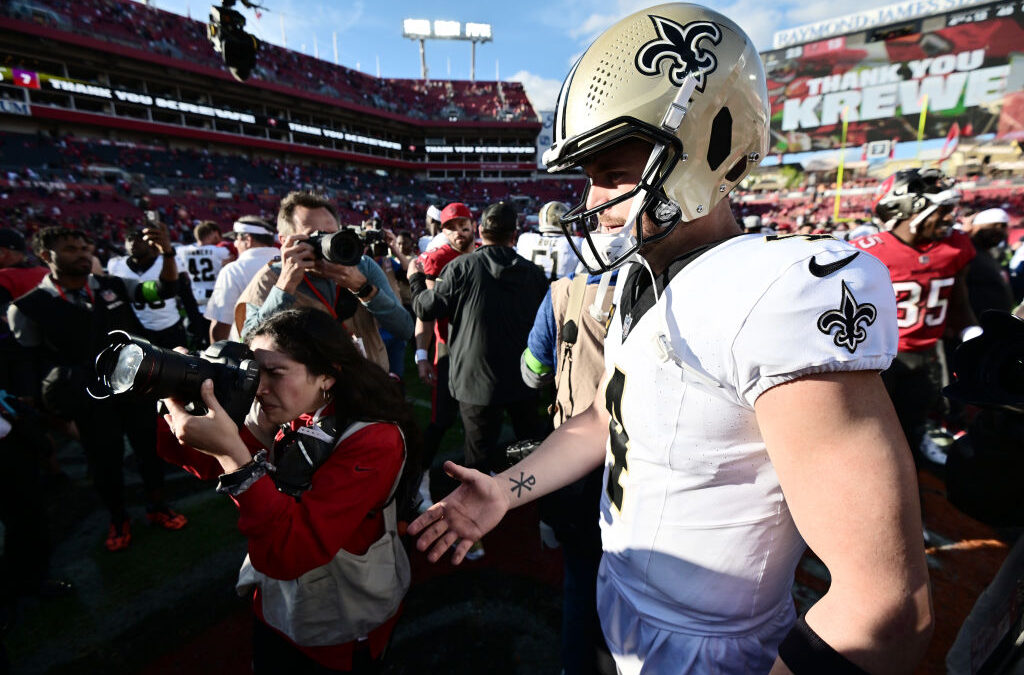
When the Saints signed Carr to a four-year, $150 million deal in free agency, the message was simple: Winning the hapless NFC South division crown was mandatory. Anything else on top of that was gravy.
And yet the Saints couldn’t do that, even with the benefit of a weak schedule. Carr’s inconsistent play was a key reason why. He threw for just 3,878 yards and 25 touchdowns against eight interceptions.
New Orleans finished a disappointing 9-and-8 and missed out on the division to the Tampa Bay Buccaneers, who won it via tiebreaker.
New York Giants: Extending Daniel Jones
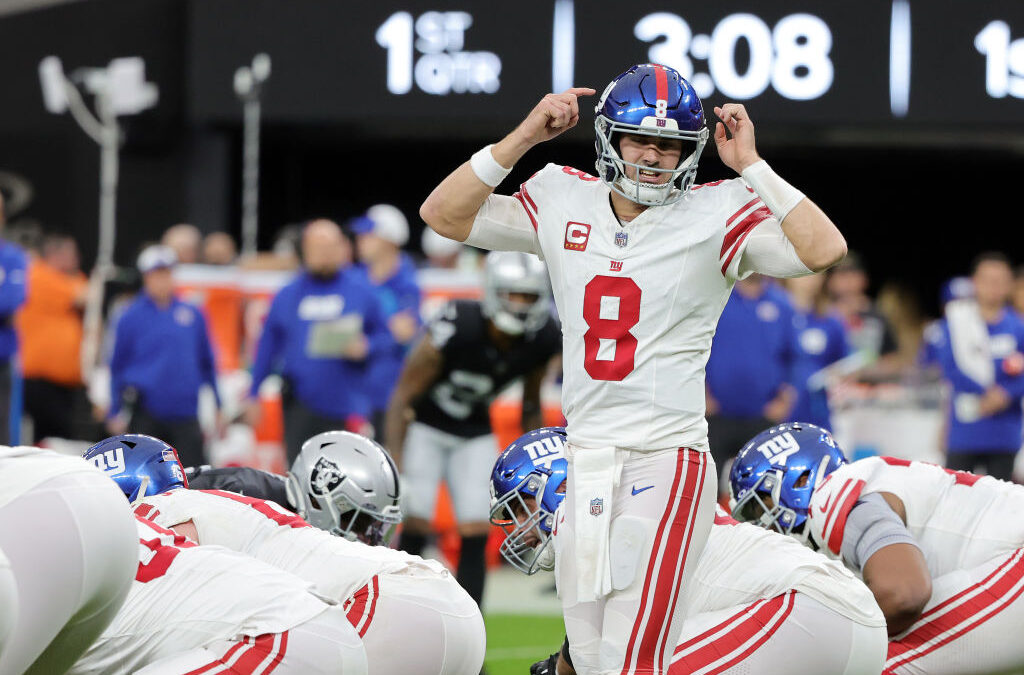
After his career year in 2022, the G-Men handed Danny Dimes a lucrative four-year extension worth $160 million.
Jones responded by going back to his usual habits. He lost five of six starts and had two touchdowns against six interceptions while taking 30 sacks, before suffering a season-ending ACL tear against the Raiders.
The talent around him was minimal, sure. But it didn’t look good on Jones when both Tyrod Taylor and Tommy DeVito played much better football in Jones’ absence.
New York Jets: Drafting Will McDonald IV
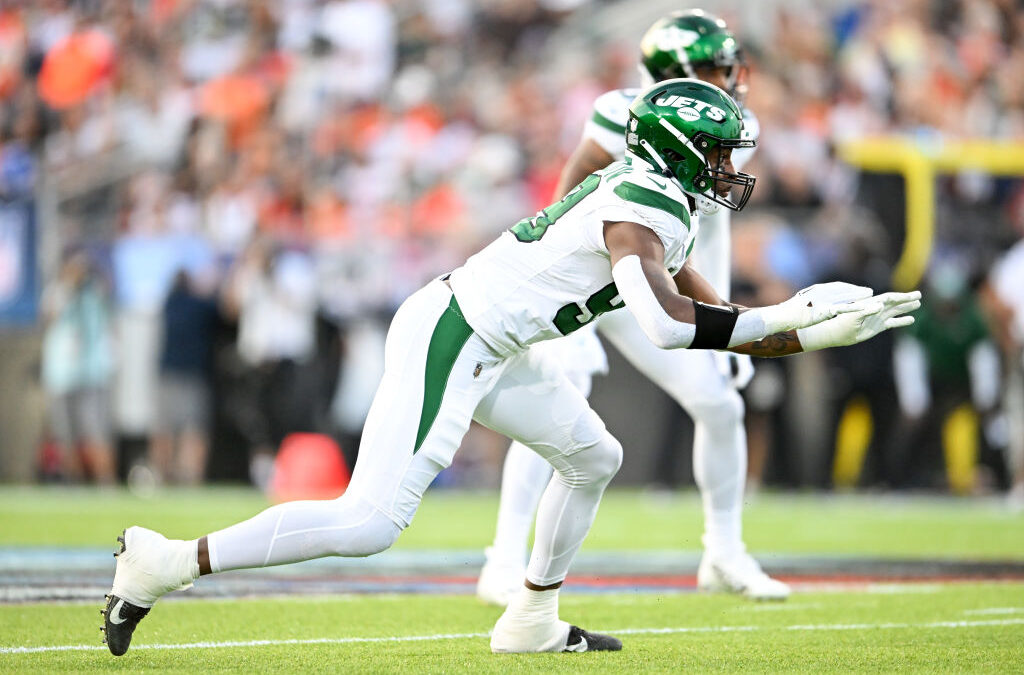
The Jets had more than enough pass-rushers heading into the 2023 NFL Draft. They sorely needed help on the o-line, yet GM Joe Douglas couldn’t help but reach for Iowa State edge rusher Will McDonald with the No. 15 pick.
The neglecting of the o-line led to Rodgers getting battered early on in his Jets debut, and he sadly suffered a season-ending Achilles tear early in the first quarter.
In a limited role with the Jets, McDonald had three sacks in 15 games. Remind us why the Jets needed a rotational edge rusher instead of an offensive lineman again?
Philadelphia Eagles: Re-Signing James Bradberry
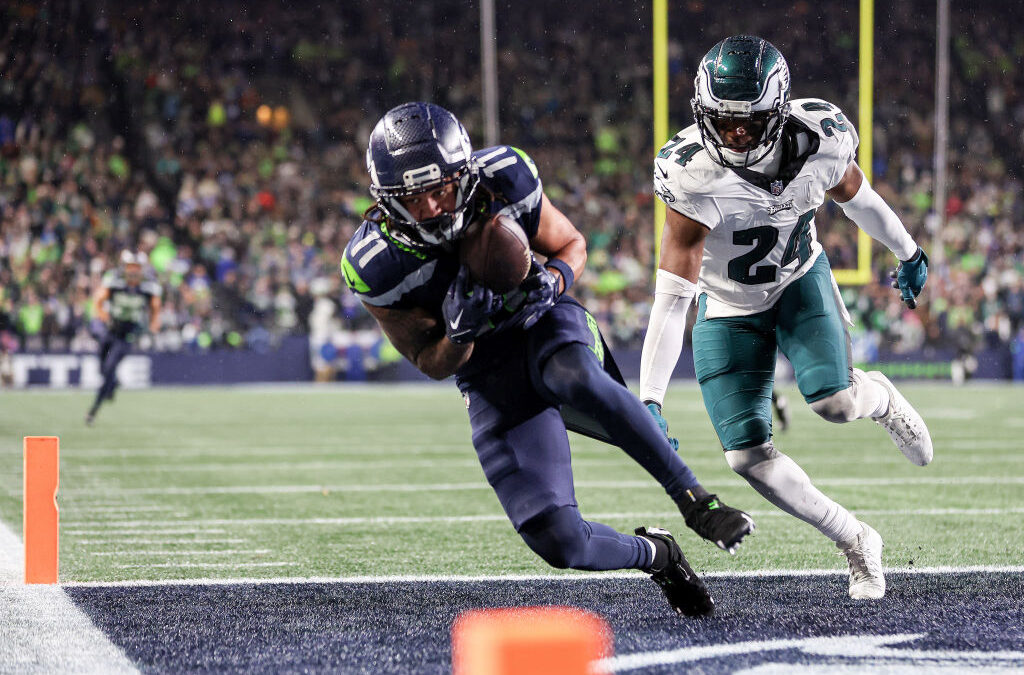
After a bounce-back 2022 season, the Eagles rolled the dice again on Bradberry by giving him a three-year extension worth $38 million.
Bradberry inexplicably went from Second-Team All-Pro to a complete liability. Per Pro Football Reference, he allowed 740 yards and 11 touchdowns in coverage while yielding a pathetic opponents’ passer rating of 114.3.
Pittsburgh Steelers: Signing Patrick Peterson
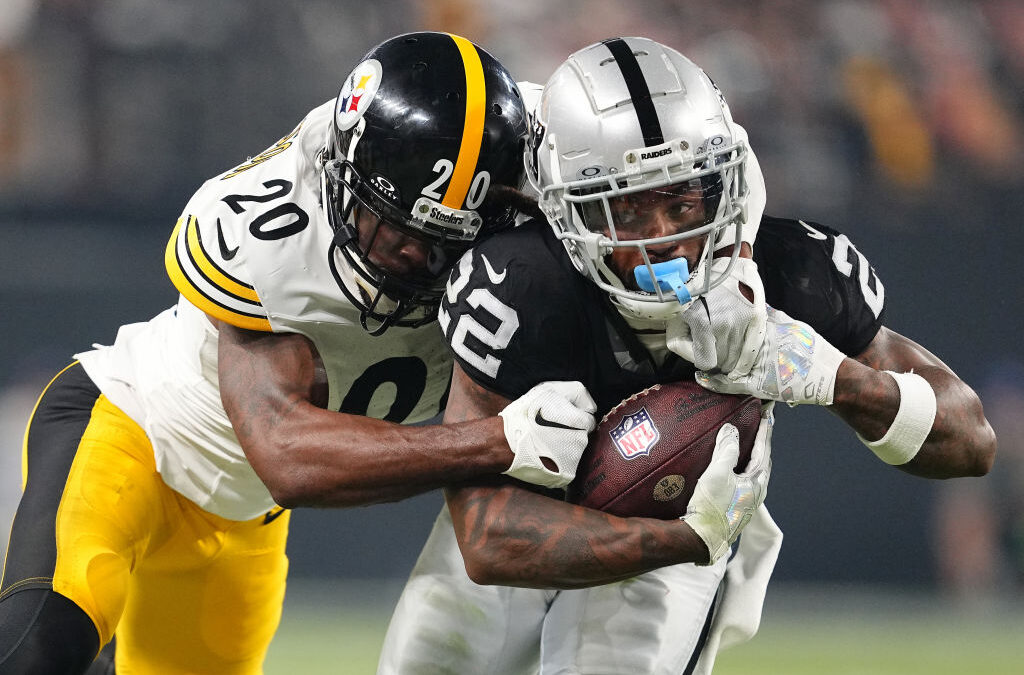
The future Hall of Famer had a nice bounce-back campaign in Minnesota, leading to a $14 million contract over two years from the Steelers.
But Peterson regressed considerably after going to Steel City, allowing four TDs in coverage and an opponent’s passer rating of 91.5. The Steelers released Peterson ahead of 2024 free agency in a cap-saving move.
San Francisco 49ers: Drafting Jake Moody
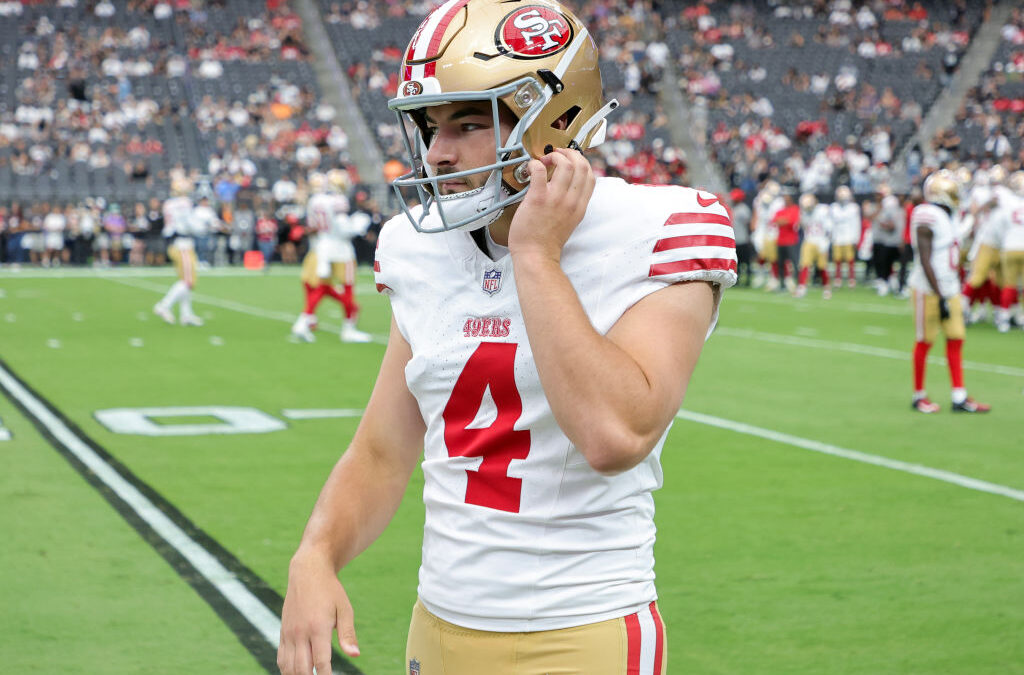
The 49ers had one of football’s best kickers in Robbie Gould, so it was a stunner when they released him last year. It was equally surprising that they used a third-round pick — 99th overall – on a kicker in Michigan’s Jake Moody.
Moody had a “meh” 84.0 field goal percentage, missing a game-winning 41-yarder against the Browns. He continued his shakiness in the postseason, missing two of eight field goal attempts and having an extra point blocked in Super Bowl 58.
Seattle Seahawks: Drafting Derick Hall
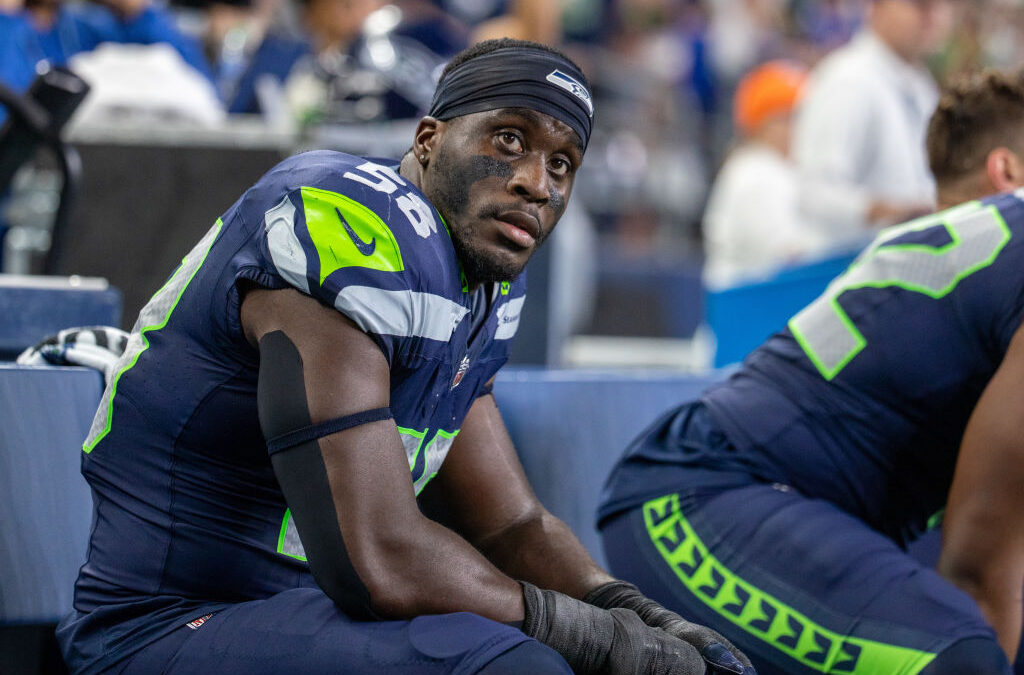
Having signed Bobby Wagner and Dre’Mont Jones to bolster an already deep pass-rush, the Seahawks didn’t need to use more early-round picks on the defensive line. But GM John Schneider used the No. 37 pick on Auburn’s Derick Hall anyway.
Hall didn’t start a single of his 17 game appearances, recording zero sacks or takeaways
Tampa Bay Buccaneers: Drafting Calijah Kancey
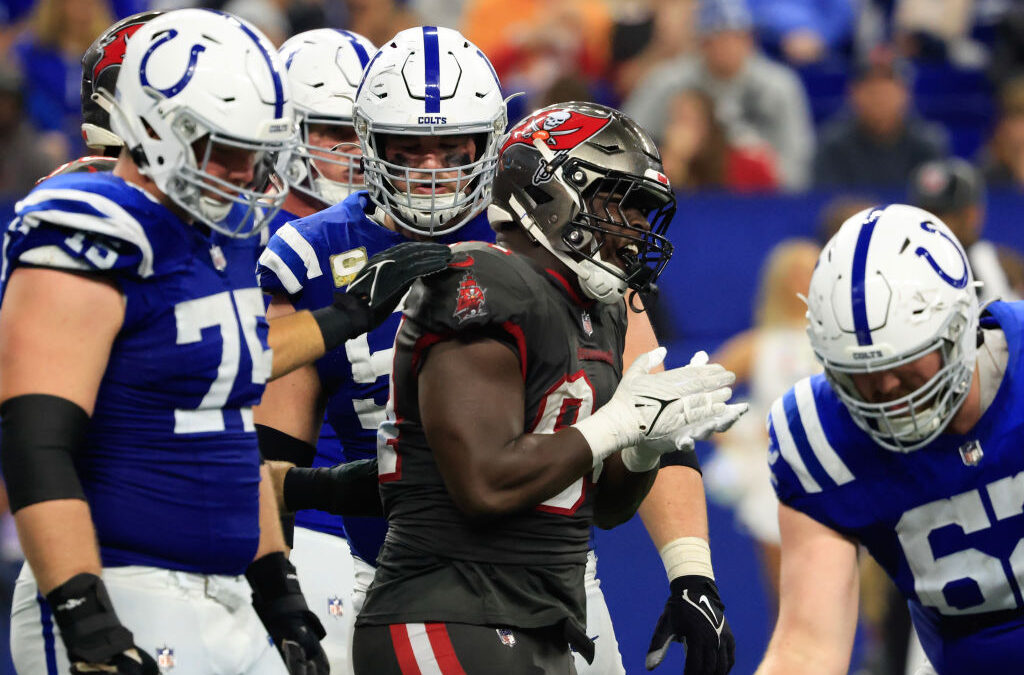
The Bucs were already loaded in the front seven and could have used more help on the o-line, at wideout or in the secondary. At any rate, GM Jason Licht decided to use the No. 19 pick anyway on Pittsburgh defensive tackle Calijah Kancey.
Kancey had four sacks in 14 games, but he was a weak link in the run D. PFF graded him at 46.6 on the year, meaning he was essentially doing more harm than good when on the field.
Tennessee Titans: Signing Andre Dillard
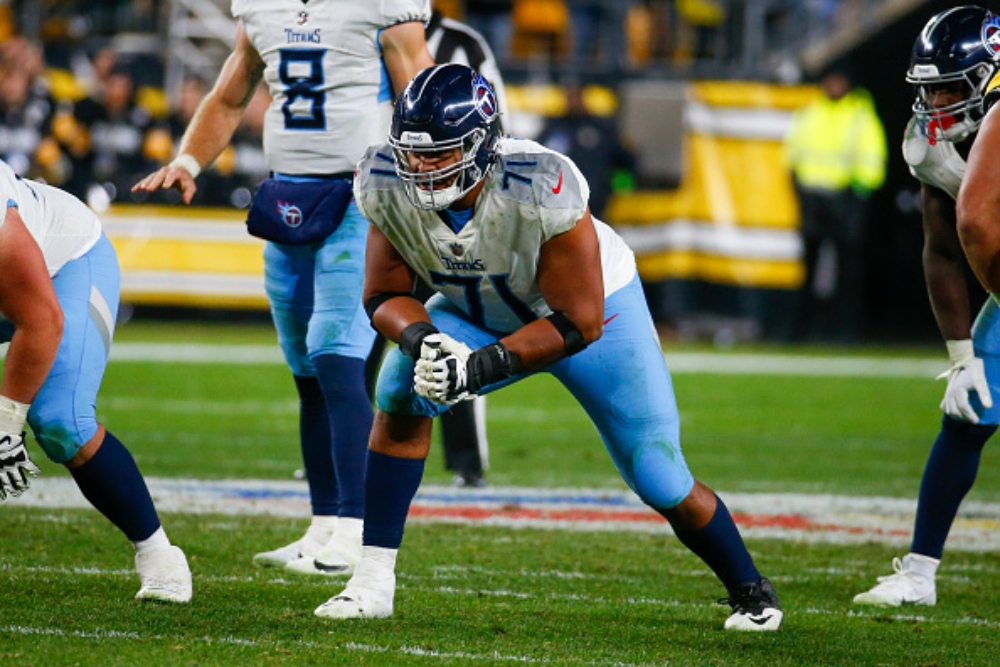
The 2019 first-round pick signed a three-year deal worth $29 million in 2023 free agency, essentially replacing longtime franchise mainstay Taylor Lewan.
Dillard was a mega bust in 2023, however. Per PFF, he allowed a whopping 12 sacks and committed five penalties in only 562 offensive snaps. Otherwise, we suppose it wasn’t too bad of a year?
Washington Commanders: Drafting Emmanuel Forbes
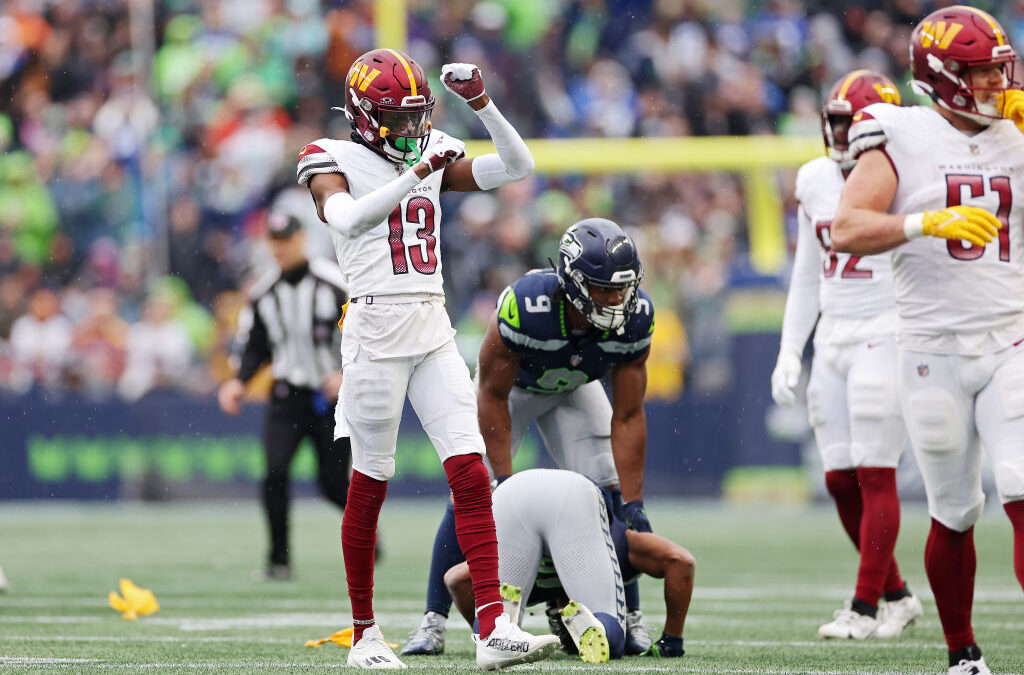
Washington used the No. 16 pick on Mississippi State corner Emmanuel Forbes, hoping he’d grow into an elite shutdown corner that the defense was lacking.
Instead, Forbes was picked on time and time again by opposing QBs throughout his rookie year. Per PFR, he allowed 598 yards in coverage and yielded a 103.0 passer rating — leading the Commanders to bench him on several occasions.

